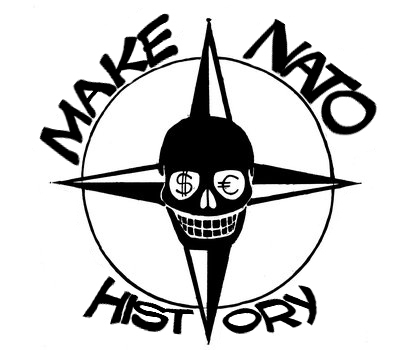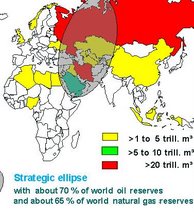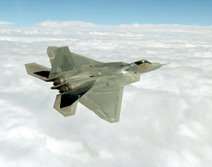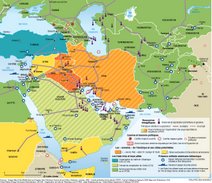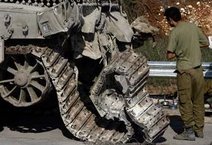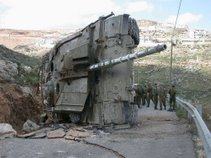
Jewish Anti-Semitism Towards Jesus and Christianity
Published May 10, 2009
ANTI+SEMITE
Any person with 3 functioning brain cells and paying even a microbe’s
worth of attention to the open assault on Christianity these days by
organized Jewish groups will assume it to be either a trick question or
a joke of some sorts, meaning the publication in the Jewish Forward
(considered to be the most “prestigious” of all Jewish newspapers
littering the American literary landscape these days) of Jay
Michaelson’s piece “Do Jews Have a Jesus Problem?”
–And with good reason. After all this–the heyday of highly-publicized
Jesus–bashing on the part of Jewish groups–is as rare these days as the
Jewish state’s denials of having deliberately used phosphorus against
Palestinian civilians in her recent masterpiece in Old Testament
butchery known as “Operation Cast Lead”.
Lest we forget, this is the era when nice Jewish girls like Sarah
Silverman make as part of their shtick that infamous “I hope the Jews
did kill Christ…I’d do it again. I’d f****** do it again—in a second” as
well as the recent tv production in Israel put together by her cousins
where the mother of Jesus was depicted as a woman who slept around and
pleasured herself with an assortment of sexual-gratification devices and
Jesus as an obese slob too heavy to walk on the sea of Galilee.
Nevertheless, in this day and age where Jews are “living large” in their
obvious distaste for the person of JC, the Forward’s Jay Michaelson asks
in the most serious of tones that question concerning Jewish antipathy
towards the Son of Man that to all but the truly uninformed is a
no-brainer of sorts. Of course, it is not an exploratory piece meant to
discover the yeas or nays of such a thesis, but rather as a way of
introducing the idea “Yeah, we Jews certainly do have a “Jesus problem”
and are completely justified and now you’re going to find out why and if
it offends you well then too fuckin’ bad.”
Of course Michaelson is not as brash or incautious as to use brusque
language like that. Rather than the overtly-violent approach in
violating the reader’s mind, he prefers instead that tried-and-true
date-rape drug, meaning the various methods perfected by his cohorts in
Hollywood who for generations now have dominated the business of turning
the masses into asses through opinion-molding and laboratory-tested
means of persuasion. Specifically, the author prepares the reader for
the science fiction that is to follow in the typically-Jewish fashion of
depicting the Chosenites ALWAYS as the victim (never the victimizer) and
incapable of doing an evil act that results in some form of negative
blowback. Possibly aware of the fact that people these days are growing
increasingly weary of sitting through the same nerve-grating opera of
Jewish kvetching over their eternal persecution, he lets loose the first
salvo in his assault on historical accuracy with a joke of sorts–
“You’ll have to forgive us Jews for being a little nervous. Two thousand
years of Christian love have worn down our nerves.”
Immediately obvious (or at least should be) is that this is going to be
YET ANOTHER (imagine that) discussion of how terribly treated the Jews
have been throughout history and how “isn’t it just terrible” and “who
can blame them for their feelings” and “this is why you Gentiles are
getting what you deserve” whenever Jewish interests produce YET ANOTHER
(imagine that) movie, column or documentary slandering Christian
culture. Short of the never-ending commentaries and documentaries
concerning Jesus being gay or else merely a fictional character who
never existed, there is the legalese to deal with–the banning of
Nativity scenes at Christmas time while the most racist, extremist of
Jewish elements from the Chabad Lubavitch sect light their infernal
menorah at every public location in the US, including the White House
itself. Done in such a way as to immediately put the
organically-anti-Christian nature of “Jewishness” in its typical role
(meaning all the result of–you guessed it–persecution and suffering on
the part of the eternal victims) it continues in the same vein–
“That says it all, doesn’t it? The scars of anti-Semitism and missionary
activity, the pathos-drenched sense of humor, the contempt for
Christianity — this is certainly how I regarded our local majority
religion as I was growing up. When I was a child, Christianity was like
the big, stupid bully: at once idiotic, and overwhelmingly powerful.
Couldn’t they see how ridiculous their religion was? A virgin birth?
Santa Claus? An Easter Bunny? A messiah who got killed, but actually
died for our sins? And yet, these were the people running our country,
telling us which days we get off from school and which we don’t, and
playing their insidious music every winter.”
As stated earlier, just like with all things involving the delusional,
bizarre- mundo world of Jewish thought processes, where everything is
upside down, backwards, convoluted and–pardon the French here–just plain
“effed” up, any discussion of Jewish contempt for Jesus Christ and the
religion/culture He founded must, repeat MUST be cast–not in the light
of historical accuracy and honesty, but rather in a
carefully-constructed drama Jews find most comfortable–meaning where
persecution, persecution, and even more persecution are the main
characters, along with all the other major players and themes
contributing to their history of suffering and woe–Anti-Semitism.
Bigotry. Intolerance. Them as the sacrificial lamb, having NEVER done
anything obnoxious, criminal, or offensive that might have acted as the
catalyst responsible for bringing the present situation into existence.
No examination of conscience on their part to see what THEY may have
done to contribute to the situation, nor even a consideration of the
possibility that in some way they were–dare we use the word
here–culpable and that the bed they now lie in is one of their own making.
Of course, those who remember even a smattering of what they heard in
Sunday school or who have spent even a moderate amount of time reading
through the New Testament understand full well that the entire premise
upon which the backwards piece appearing in the Forward rests is one of
pure fantasy and selective memory on the part of a person living in a
state of denial and obviously with something to hide when it comes to
the history of his people. The Jews and their “Jesus problem” did not
begin with the mean old “big, stupid bully” Christians and their
“idiotic and overwhelmingly powerful“ religion who were “running the
country” and deciding “which days” school was cancelled and their
“insidious music every winter.” To believe that Jews’ “Jesus problem”
began with the Christians meting out revenge on the Chosenites because
of Jesus’ crucifixion can take place only amongst those wearing special
3-d type glasses blocking out mountains of relevant historical fact
while allowing relatively small amounts of over-inflated fantasy to pass
through.
But then, we must take stock of the fact that this is 2009, a
continuation of the “Jewish century” (as Jewish writer Yuri Slezkine
wrote in his book of the same name), an age where reality-shapers in
media, academia, politics or wherever can create just about any illusion
they want and make it appear real. Where the murder of over a million
Iraqis in the span of just a year is swept from human consciousness as
if mere microbes of sand. Where Jewish math–no matter what the
equation–always adds up to “6 million” (and even in the face of
scientifically impossible criteria) and where Hollywood produces
blockbuster movies such as “Independence Day” the star character of
which is a Jewish nerd who invents a computer virus and with it saves
the entire human race from an apocalyptic alien invasion.
The truth is, going through the motions here and bringing some
historical sanity back into the discussion of Jewish hostility towards
Jesus is for all intents and purposes probably a big waste of time.
After all, Christians today have fully infused into their thinking the
idea that the people (and mindset) responsible for murdering JC are
still God’s favorite creatures, all their past deeds (including
genocide) notwithstanding. Today’s “Jesus Freaks” (as they are viewed by
Jews) are (obediently) more worried about Ahab the Arab then they are
about today’s great, great grandchildren of those who swore a blood oath
20 centuries ago to wipe out the new religion based on the virtues of
peace, justice, and compassion. For sure, this present concoction known
as Christian Zionist Dispensationalism is a madness that has but one
cure which we cannot deliver here, meaning death and standing
face-to-face with Jesus Himself as He explains what perfect morons His
supposed followers were for handing the keys to the kingdom over to the
barbarians at the gate.
Nevertheless, for the sake of posterity, here we go all the same.
The beginning of the Jews and their “Jesus problem” FAR predates any
such “persecutions” they claim to have suffered in succeeding centuries.
Truth be told, the sad story begins with Herod (called “King of the
Jews” in his time) who sent his personal butchers out to kill all the
little boys 2 years old and under in Bethlehem upon hearing that the
Messiah had arrived, threatening to undo the Jewish power structure at
that time. Following this late-term abortion on a mass-scale business,
some 30 years later we have Jesus announcing Himself and his intentions,
specifically to “bring freedom for the prisoners” and to “release the
oppressed.”
And what was the reaction on the part of these innocent,
pure-as-the-wind-driven-snow/righteousness-loving Jews who had such
close communication with the Almighty that they could claim in the most
chauvinistic way they were his “Chosen” people? Did they welcome Jesus
and His message of truth, justice and compassion? Did they fall on their
knees and rejoice that indeed God had made good on His word and had sent
them a savior to rescue them from their miserable, self-aggrandizing,
obnoxious, violent, haughty behavior?
Perish the thought fellow earthlings. Their response was to form a mob
and attempt to eliminate the person of Jesus by throwing Him over a
cliff to His death. So much for Jewish hospitality and open-mindedness
they are constantly crowing about.
That pretty much set the tone for the next 3 years that were to follow.
How many times had they taken up stones to kill Him? How many times had
He remained in Galilee, far to the north, knowing that the Jews in Judea
were waiting to take His life? Why is it He took only one Jew–Judas–into
his circle of trust and filled the balance with Galileans? How many
times did the Jews accuse Him of being a sorcerer and possessed by the
devil? It was a 3 year war between the Jews and Jesus that ended with
their conspiring to bring him up on false charges and have him killed.
They even plotted to have Lazarus–an innocent man Jesus rose from the
dead–murdered in the interests of undoing Jesus’ recent public relations
victory.
In that time period, there were no pogroms, no holocausts, no round-ups,
no expulsions…No yellow hats, no Star-of-David patches or numbers
tattooed on people’s arms. Jewish hostility to Jesus, or, as Michaelson
put it in the Forward, the Jew’s “Jesus Problem” began with their
rejection of His council and concern for their well-being, plain and simple.
And not just Him, mind you, but His followers as well. People like
Stephen, Peter, Paul, and the rest who preferred dying as free men to
living as slaves to the Jewish mindset. Stoned to death, crucified
upside down, beheaded. Those not killed were harassed, harangued, chased
from town to town and by whatever means possible deprived of their life,
liberty and pursuit of happiness.
Any sane person must ask certain questions here, not the least of which
is “How does someone NOT like this guy, this Jesus of Nazareth?” After
all, for 3 years, He healed the sick, gave sight to the blind, fed
thousands, brought the dead back to life and gave a particularly
neurotic group of people the answers they needed to live happy,
productive lives as ordinary citizens on planet earth to be followed up
with the grand finale, meaning eternity in the afterlife. How does
someone or a group of someones react with such hostility to such a
thing? What is this allergy they possessed (and continue to possess) to
certain virtues such as humility, forgiveness, forbearance and mercy
that would drive them to such madness?
The answer really is quite simple actually–Jesus and His message was
like an anti-biotic of sorts to the highly contagious/highly
infectious/highly pathological sickness known as Jewish thinking.
Remember that the Jews were (are) products of men such as Moses, Joshua,
David, Saul, Solomon, et al who gave them more bang for their buck then
the hated carpenter from Galilee. These men were the kinds of saviors
the Jews could appreciate. Moses brought death and misery upon the
Egyptians after Pharaoh discovered the wealthy and influential
Israelites were treacherous by nature and thus forced them to do honest
work for a living rather than engaging in speculation and despoiling the
Egyptian people of their life, liberty and property as the Israelite
Joseph had previously done. The “god” preached about and promoted by
these men was the kind of deity the Jews wanted, one who would bring
them riches, power, successful wars, plagues upon their enemies, etc,
etc, etc.
And then, along comes this Jesus of Nazareth–from Galilee, of all
places, considered to be an outland where only Gentiles would want to
live and a place from which “no good could ever come“. A CARPENTER to
boot, an occupation consigned for those who were enslaved by the
Israelites in the Old Testament. Did He bring the aforementioned riches,
power, successful wars, plagues upon their enemies, etc, etc, etc?
Of course not. He brought rebuke and criticism, a complete repudiation
of this central tenet of Jewish thinking which is “We are God’s chosen
people and can do whatever the f***we want to anyone and they better not
say a f****** word about it”. He brought humility, compassion,
righteousness, honesty, and the rest –”qualities” that the Jews had no
use for, and in the end, they had been Jewed out of the messiah they
felt they deserved and killed Him because of it.
And yet, in this discussion of the Jews and their “Jesus problem”, not a
MENTION of any of this from Michaelson or any of his fellow lying,
self-deceived Chosenites. No, their feelings for Jesus and His message
is all the product of the “persecution” they received from the mean old
“big, stupid bully” Christians and their “idiotic and overwhelmingly
powerful“ religion who were “running the country” and deciding “which
days” school was cancelled and their “insidious music every winter” and
NOT the tone set by their forefathers who dealt with Jesus and His
followers like a gang of thugs and terrorists.
“But wait!” the astute interject–“How can this discussion be taking
place in the first place? After all, this is the age where discussing
Jewish antipathy towards that “hewer of wood” from Galilee and His
teachings is verboten. When such discussion does take place–as logically
it should–the hounds of hell from all the various Jewish groups such as
ADL and SPLC descend upon the offending commentator for daring to
resurrect all those “old canards” and rip him to pieces with all the
usual business of “anti-Semitism”.
Of course, the obvious answer to this no-brainer question is as obvious
as stink on sweaty armpits. In the first case, Michaelson is a Jew
writing for a Jewish publication. That’s ok–The Jews can talk about
their less-than-favorable feelings for Jesus all they want and it’s a
case of “no worries, mate”, whereas when someone from outside the
Chosenite country club does so it becomes a case of “ALL HANDS ON
DECK–IMPENDING HOLOCAUST”.
The real irony (and insanity) in all of it though is exposed when the
same Jewish logic shoved down the throats of every human being over the
course of the last 60 years is applied to the whole mix. To be against
1, count ‘em, ONE Jew for whatever reason is to be an anti-Semite.
Thinking that convicted spy Jonathon Pollard should remain in prison for
having stolen and then sold to Israel over 1 million pages of
highly-classified material that led to the execution of over 1,000 US
intelligence assets makes one an anti-Semite. Believing the Rosenbergs
got what they deserved for selling America’s nuclear secrets to the
Soviet Union makes one an anti-Semite. Being outraged that the two spies
for AIPAC having the espionage charges against them dropped makes one
anti-Semitic. Noting the religious and national loyalties of individuals
with names such as Perle, Wolfowitz, Schumer, Abrams, Emmanuel, Feith et
al and noting the prominent role they played in pushing America into an
apocalyptic war against two Muslim countries makes one anti-Semitic.
However, being decidedly anti-Christian or having a “Jesus problem” (as
the self-aggrandizing bigot Michaelson put it in his recent Forward
article) does not make one an anti-Semite. This, despite the fact that
one of the notions Jewish interests are constantly shoving down the
gullets of Christians world-wide these days is that “Jesus was a Jew”
with the end goal of making gullible Christians believe these is a
kinship existing between them and their spiritual nemesis from the
synagogue when in truth there is not.
By definition then, to be against Jesus means to be an anti-Semite, and
by extension to be against even ONE–count ‘em, ONE of His 1,000,000,000
followers around the world means to be anti-Semitic as well. And yet,
with the same perfect hypocrisy that is the calling card of the Jewish
mindset, believing Jesus’ mother Mary was a prostitute who conceived Him
while menstruating is not anti-Semitic, but rather “progressive“.
Believing He “got what he deserved” in His crucifixion, that He was a
sexual deviant and sorcerer and suffers in hell by being boiled in a
cauldron of feces and semen is not anti-Semitic, but rather a case of
“freedom of religion“. Producing movies defaming Jesus and his followers
is not Jew-hatred. Rather, it is Christians getting what they deserve
for 2,000 years of Jewish “persecution”.
Not that any of this should be anything new. Again, at the risk of
repetition, if it is one thing history has taught it is that the Jews
and their Israelite predecessors–despite the high-sounding titles of
some of their publications such as ‘The Forward”–were, are and most
likely always will be the most backwards-thinking people ever to have
walked God’s green earth.
Besides Jesus Himself, perhaps it was the prophet Jeremiah (another
“anti-Semite” stoned to death by the Jews for his refusal to see things
“their way“ ) who said it best-
‘I will pronounce my judgment on these people (the Jews) because of
their wickedness in forsaking me…
Although you wash yourself with an abundance of soap the stain of your
guilt is still before me…
As a thief is disgraced only when caught, so too is the house of Israel
disgraced…they, their kings and officials, priests and prophets have
turned their backs to me and not their faces…
In vain did I punish these people and yet they did not respond to
correction…
Your sword has devoured your prophets like a ravening lion…
Even the worst of other women can learn from your ways…
On your clothes men find the lifeblood of the innocent poor, and yet in
spite of all this you dare to say ‘I am innocent!’…
These people are fools…They do not know me. They are senseless children
and have no understanding. They are skilled in evil and know not how to
do good…
Go up and down the streets of Jerusalem…Look around and search her
squares…If you can find but one person who deals honestly and seeks the
truth I will forgive this city…
Among these people (the Jews) are wicked men who lie in wait like men
who snare birds…Their house are full of deceit, they have become rich
and powerful and have grown fat and sleek and their evil deeds have no
limit…
They defend neither the orphans nor the poor…
Should I not punish them for this? Should I not avenge myself upon a
nation such as this?
Violence and destruction resound in her and her sickness is ever before me…
And yet, their ears remain closed and the word of the Lord is offensive
to them. They find no pleasure in it…
From the least to the greatest, all are greedy for gain, prophet and
priest alike, all practice deceit…
No, they have no shame at all and do not even know how to blush…
They cling to deceit and no one repents of his wickedness, saying ‘what
have I done?’
No one speaks the truth…They have taught their tongues to lie and they
weary themselves with sinning…
Therefore I will bring upon them a disaster they cannot escape and
although they cry out to me, I will not listen to them…
Do not pray for these people nor plead for them, because I will not
listen in the time of distress…
Instead, I will destroy them with the sword, famine and plague and will
pour out on them the calamity they deserve…
You have rejected me, so I will lay hands on you and destroy you, for I
can no longer show you compassion…
Your wealth and your treasures I will give away as plunder, because of
all the sins of your country…
I am against you, Jerusalem, and will punish you as your deeds deserve
and will kindle a fire in your forests that will consume everything
around you…
Through your own fault you will lose the inheritance I gave you, for you
have kindled my anger and it will burn FOREVER…

